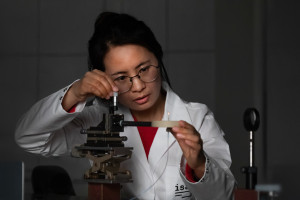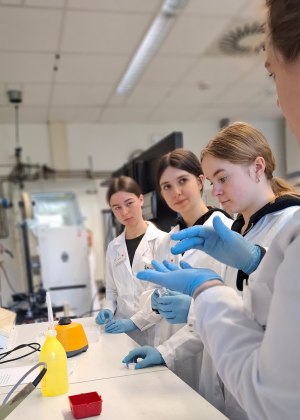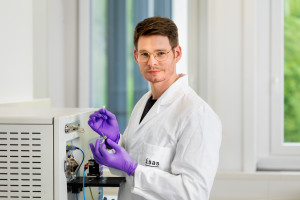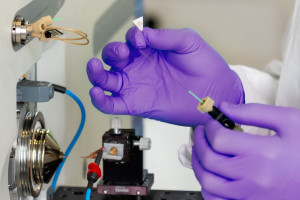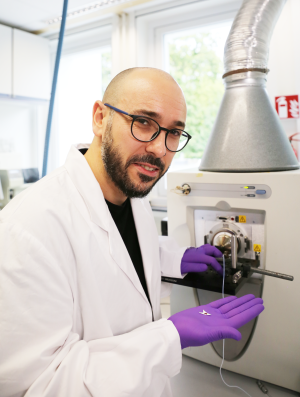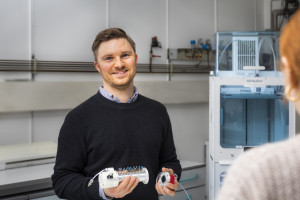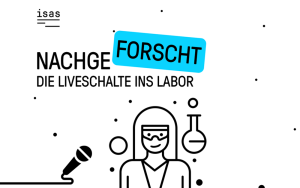The Miniaturisation research group specialises in developing and characterising miniaturised plasma for analytical chemistry; one of the objectives of its work is to optimise the work steps involved in mass spectrometry. Reducing the plasma to a miniature scale lowers the volume of samples required and thus cuts costs and saves resources. In addition, the group works on combining different ionisation processes to enable even mixtures of molecules to be investigated in the simplest way possible.
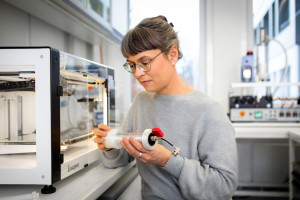
© ISAS / Hannes Woidich
The group specialises in two ionisation processes: dielectric barrier electrospray ionisation (DB-ESI) and the plasma jet. The aim of the research is to precisely characterise these discharges and to optimise them to the extent that they can be deployed synchronously in mass spectrometry. Both methods enable a soft ionisation which does not fragment the analytes. They can thus also be deployed to analyse very large molecules.
